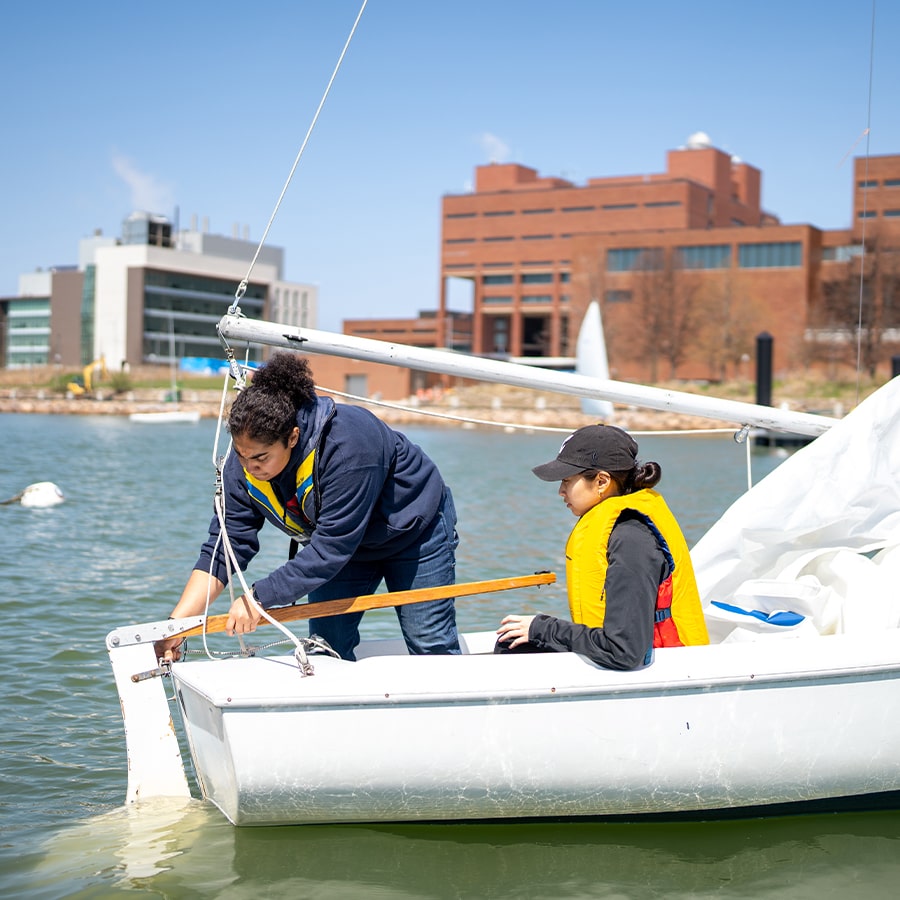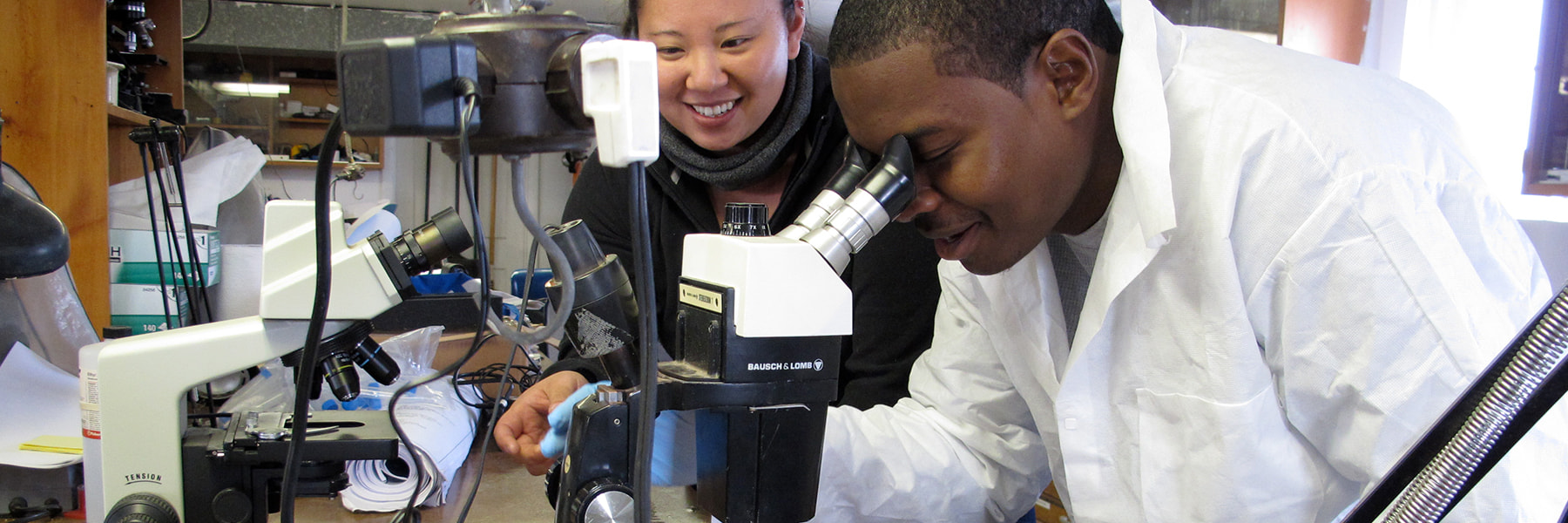Plan Your Education
How to Apply
Applicants must meet general graduate admission requirements in addition to the following program-specific requirements:
Test Scores: GRE
Letters of Recommendation: 2
Other: Faculty advisor commitment
Deadlines & Cost
Deadlines: February 1 for fall, November 1 for spring
Application Fee: The nonrefundable application fee is $75. UMass Boston alumni and current students that plan to complete degree requirements prior to graduate enrollment can submit the application without paying the application fee.
Program Cost Information: Bursar's website
Curriculum
Course Requirements
Marine Science Core (9 to 10 Credits): Complete three from below.
- ENVSCI 630 - Biological Oceanography 3 Credit(s)
- ENVSCI 640 - The Chemistry of Natural Waters 3 Credit(s)
or - ENVSCI 641 - The Geochemistry of a Habitable Planet 3 Credit(s)
- and ENVSCI 642 - Laboratory for the Geochemistry of a Habitable Planet 1 Credit(s)
- ENVSCI 650 - Physical Oceanography 3 Credit(s)
Marine Policy Core (3 Credits): Complete one from below.
- ENVSCI 670L - Environmental and Energy Economics 3 Credit(s)
- ENVSCI 674L - Climate and Energy: Law, Policy and Management 3 Credit(s)
- ENVSCI 675L - Economics of Renewables: Marine and Energy Resources 3 Credit(s)
- ENVSCI 726L - Coastal Zone Policy, Planning, and Management 3 Credit(s)
School for the Environment Seminar (2 Credits): All PhD students must attend seminar each week throughout their enrollment in the program but will receive no more than 2 credits for seminar.
- ENVSCI 791 - Seminar in Environmental Sciences 1 Credit(s)
For more information on curriculum, including course descriptions and degree requirements, visit the Academic Catalog.
Learning Outcomes
Upon completion of the Marine Science and Technology, PhD:
- Students will be able to apply the scientific method and design appropriate experiments to answer environmental science questions.
- Students will understand the contributions of laboratory, field, and survey data collection and analysis for approaching environmental science problems.
- Students will be able to analyze and critique environmental questions across multiple natural and social science perspectives and research approaches.
- Students will demonstrate analytical and quantitative proficiencies to analyze environmental and/or social science data.
- Students will understand the system interactions and feedback between human activities and social institutions and the natural environment.
- Students will be experienced in communicating their learnings both in writing, visually, and orally, and for specific and general audiences.
- Students will have gained confidence and been recognized as an expert in a their field by knowing the relevant literature, having conducted several pieces of original and significant research, presented this research publically, and have had this work reviewed by experts in their field.
Graduation Criteria
Program Requirements
Complete 54 credits from at least 14 courses including three marine science core courses, one marine policy core course, two School for the Environment seminars, 21 to 22 credits of concentration electives, and 18 credits of dissertation research.
Concentration: Students must select a concentration in coastal systems science, integrated coastal management, living marine resources science and management, marine and atmospheric system modeling and analysis, marine biogeochemistry and environmental change, marine observation technologies, or oceans and human health.
Doctoral candidacy: Successful completion of a comprehensive written and oral qualifying examination by the end of the sixth semester. If the presentation and successful defense of the dissertation do not take place within five years of admission to candidacy, the candidate must repeat the comprehensive examination.
Dissertation: Compose and defend a dissertation based on original empirical research.
Students may apply to receive a MS in Marine Science and Technology upon completion of all core courses requirements and the written and oral examinations.
Minimum grade: No courses with grade below B can be applied to the program. Students who earn B- in two courses will be considered no longer in good standing and may be dismissed from the program. Students who receive a grade below C in any graduate course will be dismissed from the program.
Grading basis: Courses must be taken graded unless the course is only offered on a satisfactory/unsatisfactory basis.
GPA: A minimum GPA of 3.0 is required from all courses applied toward the program.
Residency: Excluding intercampus marine science courses taken at UMass campuses, graduate course credits earned at another institution, as a non-degree student, or in another department may only be applied to the program with approval from the dissertation committee and graduate program director.
Course level: No more than one course taken at UMass Boston at the 300/400-level may be applied toward the program with approval of the thesis/project advisor and graduate program director.
Statute of limitations: Eight years.
Contact
Graduate Program Director Michael Tlusty
michael.tlusty [at] umb.edu
(617) 287-5285

School for the Environment
Interested in learning more about the faculty, research, and range of programs that make the School for the Environment so popular?
Explore Now